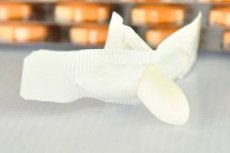Medical expert of the article
New publications
Preparations
Sea buckthorn suppositories when breastfeeding
Last reviewed: 03.07.2025

All iLive content is medically reviewed or fact checked to ensure as much factual accuracy as possible.
We have strict sourcing guidelines and only link to reputable media sites, academic research institutions and, whenever possible, medically peer reviewed studies. Note that the numbers in parentheses ([1], [2], etc.) are clickable links to these studies.
If you feel that any of our content is inaccurate, out-of-date, or otherwise questionable, please select it and press Ctrl + Enter.

Many new mothers suffer from hemorrhoids after childbirth. Unfortunately, during this period of time, popular medications cannot be used, especially if the woman decides to breastfeed. In such cases, doctors usually recommend treating the delicate problem with sea buckthorn suppositories.
 [ 1 ]
[ 1 ]
Can sea buckthorn suppositories be used while breastfeeding?
Since most modern drugs for hemorrhoids are contraindicated during pregnancy and breastfeeding, the most effective are considered to be those with natural ingredients, especially sea buckthorn oil.
It is sea buckthorn that has excellent regenerative properties, that is, it can be used without problems for hemorrhoids, as it helps to get rid of unpleasant sensations faster. Such suppositories have a healing effect, strengthen tissues, remove toxins and relieve constant itching. But for nursing mothers, the most important point is that they do not harm the health of the baby.
 [ 2 ]
[ 2 ]
Indications for use
Sea buckthorn candles are made in a torpedo shape. They have a characteristic, but not too strong smell. The active components in their composition are wax, which helps make the candles harder, and sea buckthorn oil.
Read also
- Treatment of hemorrhoids: different approaches
- Candles with propolis for hemorrhoids
- How to choose the best hemorrhoid cream?
This medicine has a stimulating and reparative effect, which helps it cope with the regeneration of mucous membranes and skin. Cytoprotective and antioxidant effects allow sea buckthorn suppositories to quickly heal and restore damaged tissues. Among other things, they protect cell membranes.
Today, suppositories with sea buckthorn oil are produced in two separate types: for rectal and vaginal use.
Vaginal suppositories help to get rid of the following diseases: endocervitis, erosions, vaginal inflammation, colpitis.
Rectal suppositories treat various proctological diseases: proctitis, cracks and ulcers in the rectum, radiation damage, sphincteritis, hemorrhoids and painful bowel movements.
Pharmacodynamics and pharmacokinetics
Sea buckthorn oil suppositories for rectal use help stimulate immune cells. Getting into the very center of inflammation, the main components of this plant have a positive effect on the activity of these cells, which helps relieve inflammation, improve the overall well-being of the patient, relieve itching and pain.
In addition, these suppositories reduce the level of histamine, which aggravates the inflammatory process. It is histamine that makes the vessels expand, as a result of which they become more vulnerable to inflammatory processes. Histamine causes severe itching, unpleasant pain, and swelling.
The candles also have an antibacterial effect. They change the DNA of some bacteria, as they act at the cellular level. Sea buckthorn copes well with pathogens of E. coli, staphylococcus, salmonella.
The pharmacokinetics of sea buckthorn rectal suppositories has not been studied.
How to use sea buckthorn suppositories for hemorrhoids
According to the instructions, sea buckthorn suppositories should be inserted in the evening before going to bed. Rectal suppositories are recommended to be inserted after a cleansing enema (defecation). It is very important that the suppository is inserted to the maximum possible depth. After the suppository has been inserted, the patient should lie quietly for half an hour. During this time, the product will be able to dissolve without problems.
Make sure that the drug does not cause any unpleasant or painful sensations, as well as itching, burning, swelling or redness. Therapy is carried out on average for up to ten days.
Contraindications for use
The only contraindication to the use of sea buckthorn suppositories is individual intolerance to sea buckthorn oil or wax. In such cases, the patient may experience allergic reactions that disappear after stopping the use of the drug. Also, suppositories should not be taken if you have diarrhea.
Side effects of sea buckthorn oil suppositories during breastfeeding
Despite all the advantages, sea buckthorn oil suppositories, which help to quickly and effectively cure hemorrhoids, also have some side effects. First of all, these are various allergic reactions that manifest themselves in the form of itching, redness of the skin, hives and other unpleasant sensations. If you notice such symptoms, you should immediately stop using the suppositories, since worsening allergies can negatively affect the health of the baby.
Storage conditions and shelf life
It should be noted that sea buckthorn suppositories begin to melt at fairly low temperatures, so they should not be stored in a cabinet with other medications. In order for the drug to remain intact and safe in its pharmacy packaging, it is recommended to store it in the refrigerator. The suppository should be removed just before administration.
Once the suppository has been removed from the blister, it can no longer be used or stored. Do not use the product after it has been in very low or high temperatures.
The shelf life of sea buckthorn candles is about two years.
Attention!
To simplify the perception of information, this instruction for use of the drug "Sea buckthorn suppositories when breastfeeding" translated and presented in a special form on the basis of the official instructions for medical use of the drug. Before use read the annotation that came directly to medicines.
Description provided for informational purposes and is not a guide to self-healing. The need for this drug, the purpose of the treatment regimen, methods and dose of the drug is determined solely by the attending physician. Self-medication is dangerous for your health.

